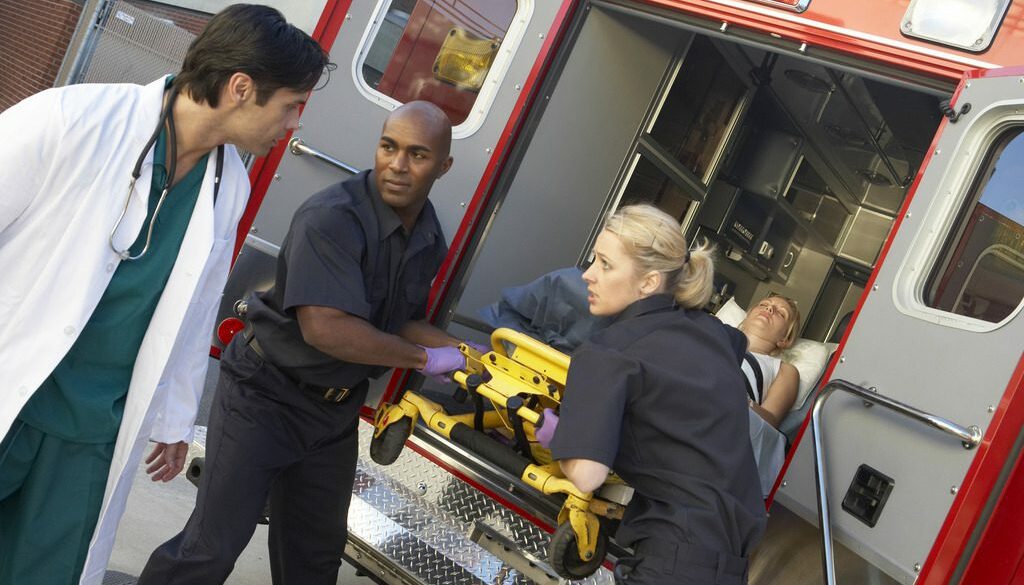Always Seek Emergency Medical Care for These Health Issues
Should you go to the Emergency Department, or is this something that could be handled by your primary care provider?
The answer to this question can have intense consequences if you are wrong.
Conway medical care professionals are dedicated to helping you in the event of an emergency. To clarify when you should go to the ER, we wanted to give a brief list of several health issues that always require emergency care.
Seek Emergency Medical Care Near You For These Health Issues
Chest Pain or Pressure
There are several possible causes of chest pain. They can be as benign as severe heartburn or as serious as a heart attack. So how can you tell the difference?
You can’t.
That’s why any chest pain should always be taken seriously. It requires emergency medical care near you. Our Conway medical care emergency physicians have received specialized training in how to handle all types of emergency situations. If you do have a heart attack, you can rest assured that our leading cardiologists can provide the best in cardiac care.
How much do you know about the warning signs of a heart attack? Do you understand how to keep your heart healthy?
We have a lot of resources that can help you.
We have a wealth of other informational articles about heart care and cardiac issues. You’ll find the following previous blogs useful:
Lesser-Known Heart Attack Symptoms
Do You Need a Cardiac Catheterization Procedure?
Difficulty Breathing
If you’re having respiratory distress or difficulty catching your breath, seek emergency medical care near you immediately—especially if your lips or nails look blue.
Breathing problems can be an indicator of a pulmonary embolism.
Traumatic Injuries
While it’s obvious you should seek emergency medical care if you’ve been involved in a car accident or other similar trauma, even injuries like a concussion can be serious.
You should seek treatment if there is any head injury—particularly if someone has passed out, fainted, or is showing signs of confusion. Any injury to the neck or spine should be immediately evaluated, especially if it results in numbness, loss of feeling or being unable to move.
Severe Burns
While some minor burns can be handled with first aid, any severe burn needs to be evaluated by an emergency physician. You’ll have to evaluate how big and how deep the burn is. The larger the burn, the more likely you are to need medical treatment.
In addition, toddlers or older adults are more susceptible to infection or complications from burns. Those who have chronic medical conditions such as diabetes are also at higher risk.
Signs of a Possible Stroke
Getting immediate medical help is vital when you first show signs of a stroke. Failure to do so could result in a more debilitating condition that will require more intensive rehabilitation.
It’s easy to remember the warning signs of a possible stroke. Just remember the acronym FAST:
F= Facial drooping. Determine if one side of the face droops lower than the other. One way to determine this is to smile. If the smile is uneven, this is a sign of facial drooping.
A= Arm weakness. If one arm is numb or weak—or if it tends to drift downward when lifted—this could be a sign of a potential stroke.
S= Speech problems. A stroke causes difficulty speaking, particularly slurred speech.
T=Time. If you or someone you know has exhibited these symptoms, it’s time to call 9-1-1.
Conway’s Medical Care Team is There to Provide Emergency Medical Care Near You
Every year, we serve 55,000 patients in our Emergency Department. Our board-certified emergency medicine physicians are ready to help. In addition, our nursing staff has advanced certifications in:
- Advanced cardiac life support
- Pediatric advanced life support
- Trauma nursing code course
- Basic cardiac life support
We hope that you’ll never be in an emergency situation. But if you are, know that Conway’s medical care team is always on standby and ready to help.




